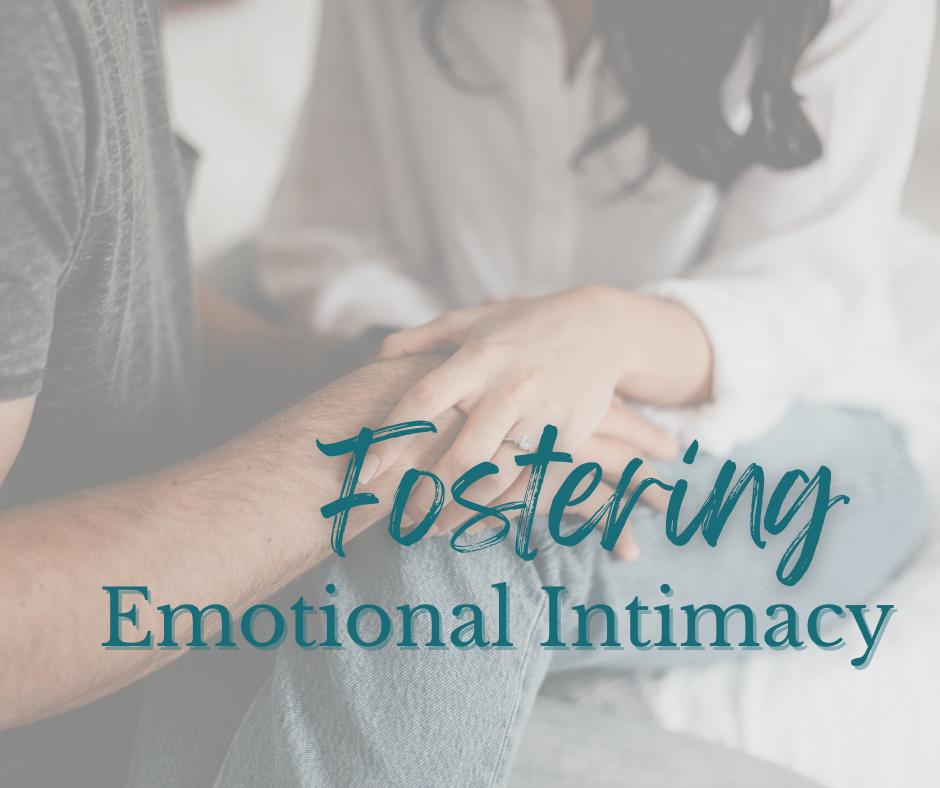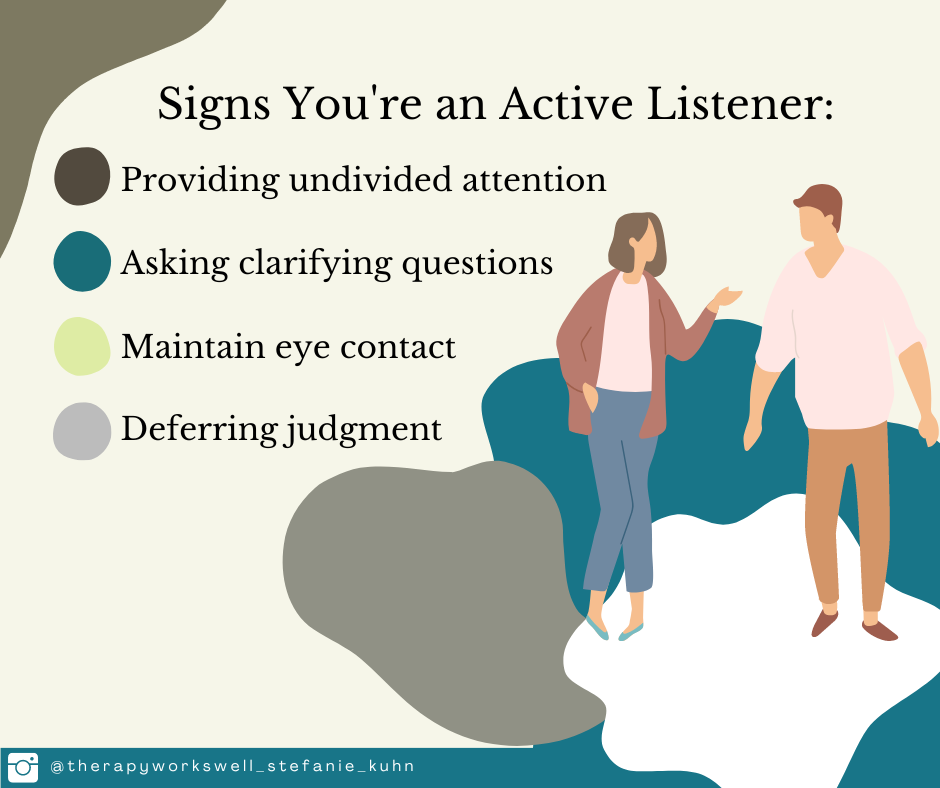Ever wondered what sets strong, long-lasting relationships apart? It’s emotional intimacy – that deep, vulnerable connection you share with your partner. But let’s be real, even the best relationships struggle with intimacy at some point. Whether it’s due to time, life changes, or communication breakdowns, it’s crucial to nurture that bond to keep your love thriving.
So, how do you build and maintain emotional intimacy in your relationship? It doesn’t always require grand gestures or major changes. Often, small daily actions can foster a strong emotional connection.

How to Build Emotional Intimacy
Being emotionally connected with your partner is one of life’s greatest joys. Who doesn’t love feeling loved and understood by someone special? That deep connection, built on vulnerability and shared experiences, is what makes relationships so fulfilling.
But building emotional intimacy can be challenging. Life gets busy, and we sometimes forget to nurture our relationships. The good news? It doesn’t have to be complicated. By incorporating these tips into your daily life, you can foster and maintain emotional intimacy as a couple.
Here are some tips for building emotional intimacy and sustaining it as a couple.
Strengthening Your Bond through Quality Time
In our hectic lives, it’s easy to let quality time with our partners slip away. But making time for each other is crucial for building emotional intimacy. Commit to a weekly date night, a cozy evening in, or just some heart-to-heart talks. The key is consistency—when you make each other a priority, your bond grows stronger.
Creating dedicated, uninterrupted time together allows you to focus on your relationship and deepen your emotional connection. So, mark those calendars and make it happen!
Fostering Emotional Intimacy through Vulnerability and Trust
Trust is the cornerstone of emotional intimacy, and vulnerability is the foundation of trust. It’s scary, but opening up about your deepest thoughts, feelings, and experiences cultivates a safe space where your partner can do the same. As you share your true selves, your bond strengthens, and trust grows.
Building trust and vulnerability takes time, so be patient with yourselves. As you gradually become more open and honest, you’ll find your emotional intimacy deepening.
Practice Active Listening in a Non-Judgemental Way

Think about the last conversation you had with your partner – even if it was just a short conversation. Do you remember what they said? Think about what you were doing as they were speaking and that’ll tell you whether you were actively listening or not.
Now think about how you responded – could there have been some judgemental tones thrown into your response? If you’re constantly thinking about the next thing to add in, you’re not really listening to your partner. Try this, instead:
- Maintain eye contact with your partner while they speak – it’ll show them you’re paying attention
- Sharing your own experience isn’t always necessary – try asking them clarifying questions instead like “Did I hear you say she threw someone under the bus?” rather than pointing the conversation towards you by saying “Something similar happened to me at work the other day…”
- Pay attention to your body language because those are non-verbal cues. They can tell your partner whether you’re actually paying attention or not.
Become Genuinely Curious About Your Partner’s Life
Even if you’ve been together for years, there is always more to learn about your partner. Show genuine curiosity about their thoughts, feelings, and experiences. Ask questions that go beyond surface-level conversations. What are their current goals? What are they passionate about?
When you take an active interest in your partner’s inner world, you not only gain deeper insight into who they are, but you also create opportunities for emotional intimacy to flourish. Remember, relationships are always evolving, and there’s always more to discover about each other.
Share Gratitude For Your Partner On A Regular Basis
Never underestimate the power of expressing gratitude and appreciation for your partner. When you consistently acknowledge and celebrate each other’s efforts and qualities, your emotional connection strengthens, and your relationship becomes a source of joy and comfort. While there’s no need to drone on and on about the importance of showing appreciation for your partner and what they do, it’s incredible how many people skip this step in relationships.
No one wants to be taken for granted. Giving gratitude for something as simple as folding and putting away laundry goes a long way towards building emotional intimacy. What’s more, adding the impact their actions have on you makes those bonds stronger. When you state why you are grateful, it helps your partner hear how valued they are. Consider sharing the values or qualities the actions reveal about them. It’ll help your partner understand what you appreciate about them on a more specific level. Let’s try a few:
- “Thank you for taking the trash out! It gave me some time to wrap up some work stuff without having to worry about the garbage. I love that you could see that I was swamped and just got it done so I didn’t have to worry about it later. You’re the best!”
- “I appreciate that you got the kids’ computers set up and ready for their tutoring sessions while I was getting them from school. It made the transition from school to tutoring a lot easier without them having to deal with my anxiety of getting it all done.”
- “Thanks for making me some lunch. I know it’s not easy when we both work from home and have opposite schedules but I probably wouldn’t have had a bite to eat today without it. You’re an incredible partner and I appreciate that you take care of me.”
Prioritizing Sexual Satisfaction to Strengthen Emotional Intimacy
According to McCarthy & McCarthy, the first six months to two years of a relationship, the frequency of sex goes down. However, it’s not just the frequency of sex that affects satisfaction—differences in sexual desire can also play a role. A study in the Journal of Sex and Marital Therapy found that emotional connection is linked to sexual satisfaction.
To be blunt—it’s not enough to simply have sex. The key to building emotional intimacy through physical connection lies in exploring and understanding each other’s sexual desires. When both partners aim to please and satisfy each other, it creates a fulfilling sex life and helps rebuild emotional bonds both in and out of the bedroom.
Focusing on mutual sexual satisfaction can deepen and help rebuild your emotional connection, but remember that open communication is vital. Talk about your desires, listen to your partner’s needs, and together, work to create an incredible sex life that strengthens your emotional intimacy.
Create Rituals and Traditions Together
Routines, rituals, and traditions are the little things we look forward to and it goes beyond Thanksgiving dinner, Christmas, and the annual 4th of July BBQ. Creating daily rituals or routines gives you something to look forward to every day. Including your partner in those daily traditions makes it better and can help foster emotional intimacy. Some connection rituals include:
- Morning coffee together
- Daily workouts (and maybe shower time!)
- Weekly dinner date
- A nightly cocktail after work
- Lunch dates
- Evening walks with the dog
- Dinner table round-robin
Explore New Things Together
Recently, a friend of mine was complaining that her husband wanted to go to an event where you could pick out something to paint on a canvas and bring your own wine. He thought it would be something cool to try out together because she’s really creative and he likes wine. It backfired and she had little interest. When I probed her about it, she said “I want to try new things together, just not this.” After some further discussion, she mentioned that painting is a stress reliever for her and she didn’t want her husband to ruin her “solo-thing.” I asked her to just try it because how do you know he’ll ruin it if you don’t try it? Turns out, he didn’t ruin anything and they had a great time.
Research shows that couples can rekindle closeness when they try new activities together. You don’t need to scour the internet for ideas of new things to try, here are some helpful suggestions:
- Try a new restaurant together
- Take dance lessons
- Sign up for an art class
- Go to an Escape Room
- Try co-ed soccer or ninja training
- Find a new path to go hiking
- Play a “Choose Your Own Adventure” game

Repairing Emotional Intimacy
When you’ve been together long enough, you’re bound to hit some rough patches. Those bumps in the road can make it harder to connect on a regular basis which means you’re going to work on repairing emotional intimacy rather than building it. The following tips may seem like no-brainers but they take more work from both parties and are often forethoughts down the road.
Deal with Your Sh*t!
When you have more baggage than an airline, it’s time to call in the big guns and get some help. We all go through experiences (traumatic or just tough) but some people are better at processing those experiences than others. Think about how you react to life changes – like a new job, a reorg at work, a new baby, or a move. Navigating through life’s changes is a challenge but if you shut down, retreat inward, or get incredibly frustrated it’s likely because you went through something in the past without any help or guidance to help you get through it.
When you live with unresolved feelings, or baggage, it can have an impact on your emotional bond with your partner. Find a therapist or counselor who can help you work through your emotional baggage so you can heal.
Work on Self Growth
It goes without saying that working on yourself first is one of the hardest things you can do to foster intimacy in a relationship but you can’t repair emotional intimacy if your self esteem is in the gutter. When you feel badly about yourself, guess what’s going to fuel conflict in your relationship? Insecurity! When you wallow in self-pity, you can’t be an active listener.
Make small steps by doing positive things for yourself like going to the gym (endorphins RULE!), take a class to learn something new, or cross something off your bucket list. Take bigger steps by working with a therapist who can help you boost your self confidence and build your self worth.
Spend Time Alone Together
When was the last time you both focused on each other? Spending quality time alone together is a basic essential for rebuilding emotional intimacy. In this case, the quantity is just as important as the quality. You need to spend some distraction-free time together without kids, pets, friends, and electronic devices and you need to do it frequently. We’re not talking about going to a sports bar to catch the game together – you might enjoy it but your partner may come along for the mozzarella sticks.
Quality time is defined by the two of you together but activities should be when you can give each other your undivided attention. So, spend some time talking to each other about the things you think you like to do together and do more of those things…together.
Tackle Relationship & Intimacy Issues Together
We’re human and we won’t always see eye to eye with our significant other or partner. That means how you handle conflict is different from how your partner handles it. How you communicate is different from your partner’s communication style. When these disparities are big enough, it can create friction in your relationship. Couples counseling can help you resolve conflicts and miscommunications in your relationship while sex therapy can help you address sexual concerns and intimacy issues together. Both are talk therapy-based and can help you communicate effectively, build physical and emotional intimacy, and work on underlying issues that make it harder for you two to connect.
Emotional Intimacy in Practice
The suggestions above and throughout this article are just that…they are suggestions. They should be used in conjunction with each other and combine it with the following practical tips:
Don’t assume your partner knows how much you care—tell them! Regularly express your feelings, and be intentional with your words and actions. Whether it’s saying “I love you” more often or complimenting your partner’s efforts, small gestures of affection go a long way in strengthening emotional intimacy.
Relationships are not competitions, and keeping score—whether it’s about chores, favors, or sacrifices—creates resentment. Instead, focus on giving and receiving with an open heart. Emotional intimacy is about mutual respect and care, not tallying up who did what.
Don’t shy away from difficult conversations. Talking through misunderstandings and conflicts helps clear the air and prevents emotional walls from being built. When you face challenges together, it strengthens your bond and reinforces emotional intimacy.
Surprise your partner with small, thoughtful gestures that show you care. Whether it’s leaving a sweet note, cooking their favorite meal, or planning a fun date night, these unexpected acts remind your partner that they’re on your mind.
Emotional intimacy requires effort. Make a commitment to work on your relationship daily, even when life gets busy. Be intentional about staying connected, and don’t wait until there’s a problem to start putting in the work.
Building emotional intimacy is an ongoing process that requires time, trust, and consistent effort. By making time for each other, practicing vulnerability, listening actively, and showing genuine interest in your partner, you can strengthen the emotional bond that keeps your relationship thriving.
These tips are practical tools that you can use to grow closer as a couple, but the most important part is your willingness to put them into practice. Emotional intimacy is a journey, and it’s one worth taking.
If you and your partner are struggling to foster emotional intimacy, you don’t have to go through it alone. Reach out to Stefanie to schedule a session and start working towards a stronger, more connected relationship.
Updated: 10/4/24
Improve Emotional Intimacy
Couples counseling can help you resolve conflicts and miscommunications in your relationship to help repair and improve your emotional intimacy. Let’s work through it together.




